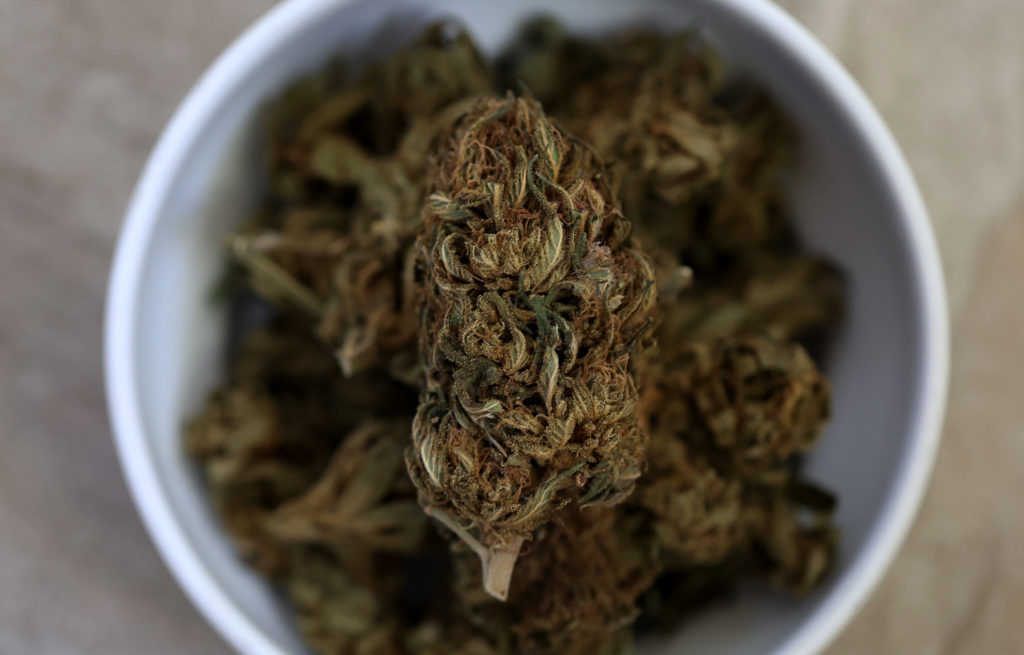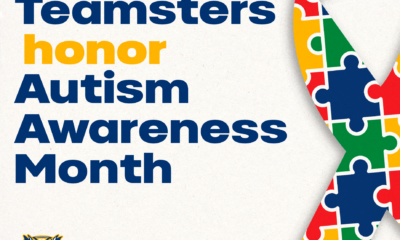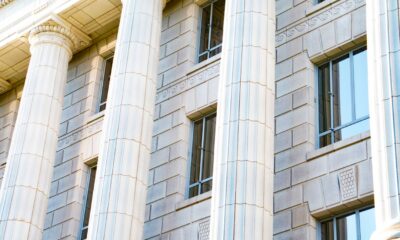News
What reclassifying marijuana means for Americans


Google News Recentlyheard
WASHINGTON (AP) — The U.S. Drug Enforcement Administration is transferring towards reclassifying marijuana as a much less harmful drug. The Justice Division proposal would acknowledge the medical makes use of of hashish, however wouldn’t legalize it for leisure use.
The proposal would transfer marijuana from the “Schedule I” group to the much less tightly regulated “Schedule III.”
READ MORE: What’s cannabinoid hyperemesis syndrome? Right here’s what to know and why consultants say it’s on the rise
So what does that imply, and what are the implications?
What has truly modified? What occurs subsequent?
Technically, nothing but. The proposal should be reviewed by the White Home Workplace of Administration and Funds, after which bear a public-comment interval and evaluation from an administrative decide, a probably prolonged course of.
Nonetheless, the change is taken into account “paradigm-shifting, and it’s very thrilling,” Vince Sliwoski, a Portland, Oregon-based hashish and psychedelics legal professional who runs well-known authorized blogs on these subjects, instructed The Related Press when the federal Well being and Human Companies Division really helpful the change.
READ MORE: Reclassifying pot might usher in a brand new period in medical marijuana analysis
“I can’t emphasize sufficient how large of reports it’s,” he stated.
It got here after President Joe Biden requested each HHS and the legal professional basic, who oversees the DEA, final 12 months to evaluation how marijuana was labeled. Schedule I put it on par, legally, with heroin, LSD, quaaludes and ecstasy, amongst others.
Biden, a Democrat, helps legalizing medical marijuana to be used “the place applicable, in step with medical and scientific proof,” White Home press secretary Karine Jean-Pierre stated Thursday. “That’s the reason it is vital for this unbiased evaluation to undergo.”
If marijuana will get reclassified, wouldn’t it legalize leisure hashish nationwide?
No. Schedule III medication — which embrace ketamine, anabolic steroids and a few acetaminophen-codeine combos — are nonetheless managed substances.
They’re topic to numerous guidelines that permit for some medical makes use of, and for federal legal prosecution of anybody who traffics within the medication with out permission.
No modifications are anticipated to the medical marijuana applications now licensed in 38 states or the authorized leisure hashish markets in 23 states, however it’s unlikely they’d meet the federal manufacturing, record-keeping, prescribing and different necessities for Schedule III medication.
There haven’t been many federal prosecutions for merely possessing marijuana lately, even beneath marijuana’s present Schedule I standing, however the reclassification wouldn’t have an instantaneous influence on individuals already within the legal justice system.
“Put easy, this transfer from Schedule I to Schedule III will not be getting individuals out of jail,” stated David Culver, senior vp of public affairs on the U.S. Hashish Council.
However rescheduling in itself would have some influence, notably on analysis and marijuana enterprise taxes.
What would this imply for analysis?
As a result of marijuana is on Schedule I, it’s been very tough to conduct licensed scientific research that contain administering the drug. That has created one thing of a Catch-22: requires extra analysis, however boundaries to doing it. (Scientists typically rely as an alternative on individuals’s personal stories of their marijuana use.)
Schedule III medication are simpler to review, although the reclassification wouldn’t instantly reverse all boundaries to review.
WATCH: Medical marijuana analysis comes out of the shadows
“It’s going to be actually complicated for a very long time,” stated Ziva Cooper, director of the College of California, Los Angeles Heart for Hashish and Cannabinoids. “When the mud has settled, I don’t know what number of years from now, analysis can be simpler.”
Among the many unknowns: whether or not researchers will be capable of examine marijuana from state-licensed dispensaries and the way the federal Meals and Drug Administration may oversee that.
Some researchers are optimistic.
“Decreasing the schedule to schedule 3 will open up the door for us to have the ability to conduct analysis with human topics with hashish,” stated Susan Ferguson, director of College of Washington’s Addictions, Drug & Alcohol Institute in Seattle.
What about taxes (and banking)?
Underneath the federal tax code, companies concerned in “trafficking” in marijuana or some other Schedule I or II drug can’t deduct hire, payroll or numerous different bills that different companies can write off. (Sure, at the least some hashish companies, notably state-licensed ones, do pay taxes to the federal authorities, regardless of its prohibition on marijuana.) Business teams say the tax price typically finally ends up at 70 p.c or extra.
The deduction rule doesn’t apply to Schedule III medication, so the proposed change would reduce hashish corporations’ taxes considerably.
They are saying it will deal with them like different industries and assist them compete in opposition to unlawful rivals which might be irritating licensees and officers in locations resembling New York.
“You’re going to make these state-legal applications stronger,” says Adam Goers, an government at medical and leisure hashish large Columbia Care. He co-chairs a coalition of company and different gamers that’s pushing for rescheduling.
It might additionally imply extra hashish promotion and promoting if these prices may very well be deducted, in response to Beau Kilmer, co-director of the RAND Drug Coverage Heart.
Rescheduling wouldn’t straight have an effect on one other marijuana enterprise downside: problem accessing banks, notably for loans, as a result of the federally regulated establishments are cautious of the drug’s authorized standing. The trade has been wanting as an alternative to a measure referred to as the SAFE Banking Act. It has repeatedly handed the Home however stalled within the Senate.
Are there critics? What do they are saying?
Certainly, there are, together with the nationwide anti-legalization group Good Approaches to Marijuana. President Kevin Sabet, a former Obama administration drug coverage official, stated the HHS suggestion “flies within the face of science, reeks of politics” and provides a regrettable nod to an trade “desperately on the lookout for legitimacy.”
Some legalization advocates say rescheduling weed is just too incremental. They wish to preserve the give attention to eradicating it fully from the managed substances checklist, which doesn’t embrace such gadgets as alcohol or tobacco (they’re regulated, however that’s not the identical).
READ MORE: Many individuals suppose hashish smoke is innocent. Right here’s how how that perception can put well being in danger
Paul Armentano, the deputy director of the Nationwide Group for the Reform of Marijuana Legal guidelines, stated that merely reclassifying marijuana could be “perpetuating the present divide between state and federal marijuana insurance policies.” Minority Hashish Enterprise Affiliation President Kaliko Castille stated rescheduling simply “re-brands prohibition,” quite than giving an all-clear to state licensees and placing a definitive near many years of arrests that disproportionately pulled in individuals of coloration.
“Schedule III goes to go away it in this sort of amorphous, mucky center the place individuals are not going to know the hazard of it nonetheless being federally unlawful,” he stated.
Peltz reported from New York. Related Press writers Colleen Lengthy in Washington and Carla Okay. Johnson in Seattle contributed to this report.
-
Health1 week ago
Humeral shaft fractures: Clinical picture, diagnosis, treatment.
-

 Health1 week ago
Health1 week agoEssential for Transferring Protective Antibodies to Babies, Bolstering Infant Health
-

 News4 weeks ago
News4 weeks agoTeamsters Recognize Autism Awareness Month
-

 Business3 weeks ago
Business3 weeks agoMargarita Howard’s Winning Strategy for HX5 as Prime Contractor and Subcontractor
-

 News2 weeks ago
News2 weeks agoWatch: Cat clinging to car door in Dubai flooding scooped up by rescuers
-

 News1 week ago
News1 week agoLeBron James rants at NBA’s replay center after Lakers-Nuggets buzzer-beater – NBC Los Angeles
-

 Health1 week ago
Health1 week agoCultivating Healthy Habits for a Positive Lifestyles for Wellness
-

 News4 weeks ago
News4 weeks agoTime, path, glasses, everything to know
